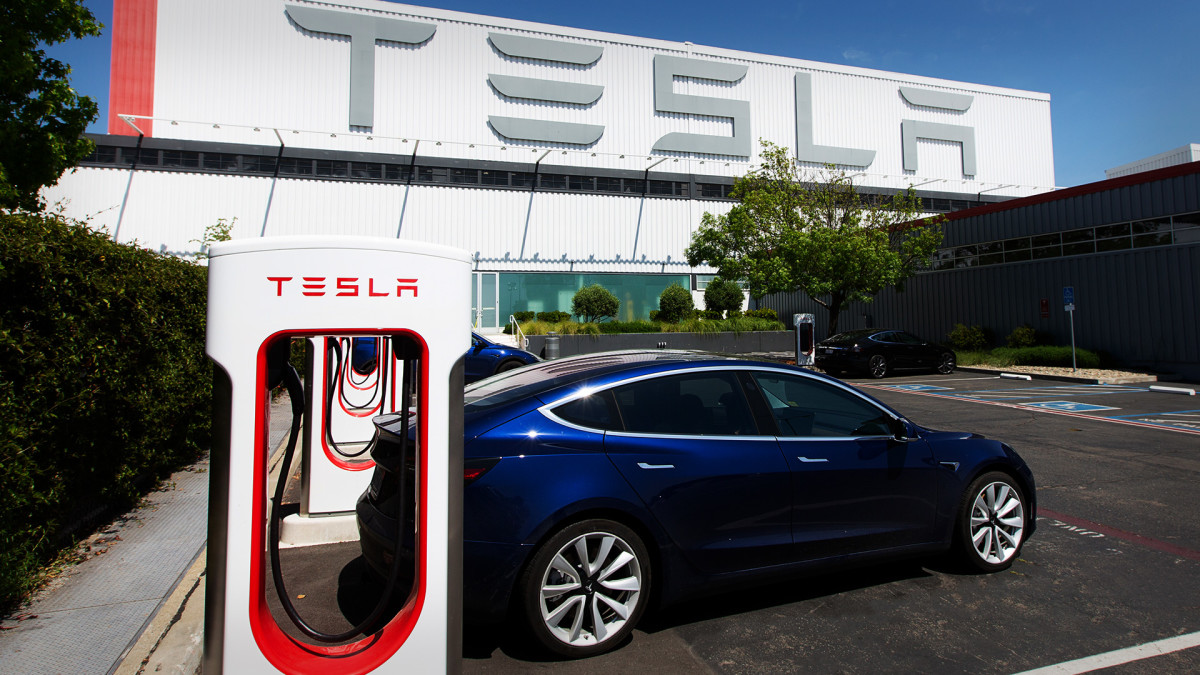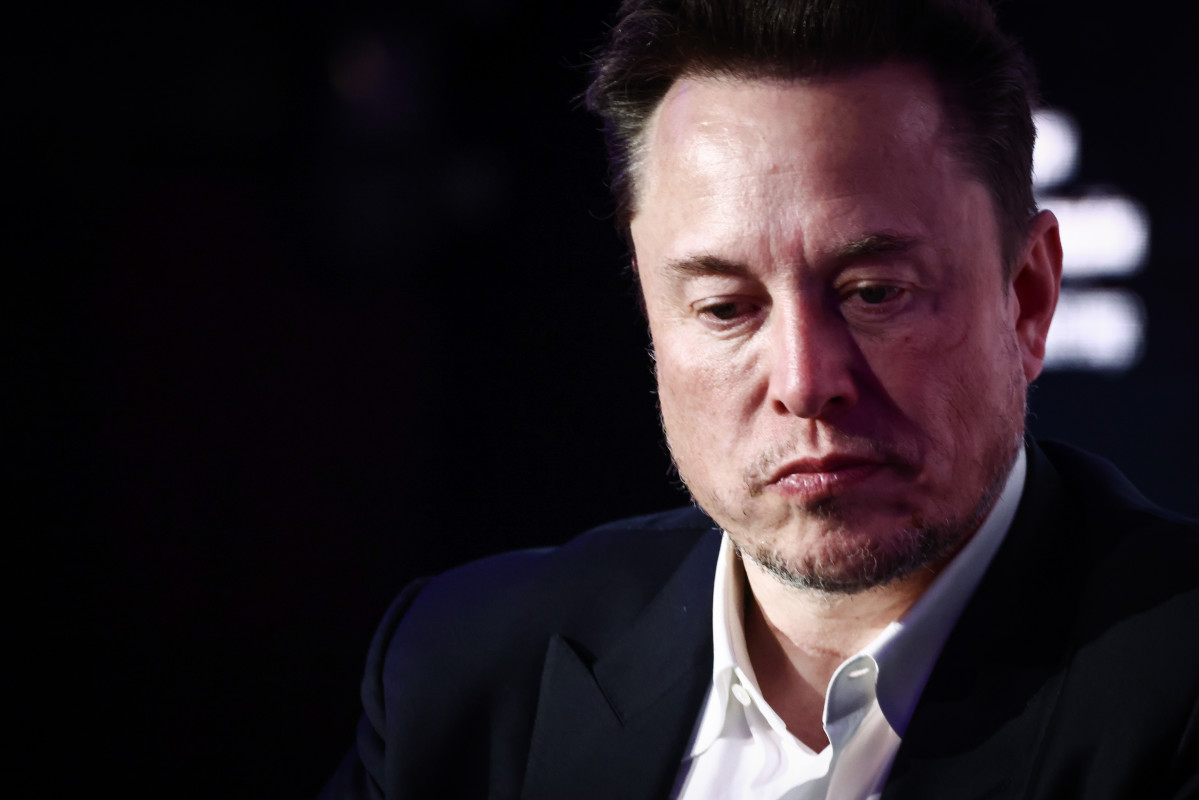
Tesla (TSLA) shares look set to extend their 2024 slump past 33% Wednesday as analysts and investors rush to reprice the world's leading EV maker following its starkly disappointing first quarter delivery update.
Tesla's March-quarter delivery numbers in fact showed the biggest non-pandemic decline in more than 10 years, with just under 387,000 units handed to customers over the three month window.
The tally was not only 8.5% lower than last year's levels, it was 20% south of the record 484,507 tally reached over the three months ended in December and well shy of Wall Street's consensus forecast of around 455,000.
Tesla cited the impact of "factory shutdowns resulting from shipping diversions caused by the Red Sea conflict and an arson attack at Gigafactory Berlin" for the muted first quarter total. The report followed on from warnings earlier this year that 2024 deliveries would be "notably lower" than prior-year levels.
Morgan Stanley analyst Adam Jonas, however, says that while Tesla cited supply-side challenges to the disappointing delivery figures, "the bigger factor is slowing demand."

Weaker-than-expected sales figures from China, where last month's volumes fell to the lowest in more than a year, would certainly suggest a big demand problem, as would the electric-vehicle group's constant tinkering with prices in an environment of high interest rates and challenging affordability.
Tesla faces demand headwinds, bloated inventory
"Investors are concerned that EV [estimates are] way too high relative to recent investments in production capacity," Saxo Bank strategists wrote Wednesday. "Higher interest rates and issues with building out EV infrastructure for charging are hitting demand."
Goldman Sachs analysts have also argued that any reduction in the number of vehicles eligible for purchase credits tied to the Inflation Reduction Act could affect between 5% and 15% of total EV demand, while an outright repeal "could affect 10% to 30% of demand."
Morgan Stanley's Jonas also notes that not only were Tesla's first-quarter-delivery figures wildly outside Wall Street forecasts, they also represent a new and increasing challenge to the group's near-term profit.
Tesla's production rate of around 412,000 vehicles, the bulk of which were the lower-end Model 3 sedans and the Model Y midsize SUVs, outpaced demand by around 46,600, according to Jonas.
That leaves Tesla with a bloated overall inventory of around 24 days of supply, a nine-day increase from end-of-year levels and likely the largest on record.
At Tesla, price cuts might not work
"First quarter deliveries represent the last catalyst for further significant consensus (earnings) reductions," Jonas wrote. "We would prepare for Tesla to initiate cost-cutting initiatives to help preserve margin rather than to double down on price cuts."
Guggenheim analysts, who lowered their price target on Tesla by $10, t0 $122 per share following yesterday's delivery update, said they "sense a strategic shift from Tesla to defend pricing (correct long-term strategy, in our view) at the expense of volumes.”
In other words, Musk may need to abandon one of his key 2024 strategies – prioritizing market share over profitability – to keep investors on board with the company's longer-term narrative.
Related: Top analyst revamps Tesla price target, sees potential profit surprise
Hints of that change came earlier this year amid reports that Musk had asked managers to define which positions within their units were critical to the group's business. Bloomberg also reported that U.S. managers have been asked to make a "binary" assessment of roles across the group.
Tesla employs around 140,400 worldwide, with major production facilities in Texas, California, Germany and China.
Musk needs to pull other Tesla levers
Musk may also need to accelerate the group's AI ambitions, which are increasingly linked to its efforts to offer self-driving capabilities in all its vehicles.
Tesla claims to have data based on around 300 million miles of driving, a figure Musk said last year would "soon be billions of miles and tens of billions of miles." Those data, along with its AI supercomputer, could provide a huge competitive advantage in the self-driving market, he said.
Late last month Musk told Tesla employees that it would be "mandatory" for its North American operations to "install and activate" Full-Self-Driving software in new Tesla vehicles and to "take customers on a short test ride before handing over the car."
"Almost no one actually realizes how well (supervised) FSD works," Musk wrote in the memo. "I know this will slow down the delivery process, but it is nonetheless a hard requirement."
Related: Tesla shares tumble after 'unmitigated disaster' in Q1 deliveries
Analysts also see underlying value in Tesla's energy division, which sells energy-storage and solar-energy systems.
The unit saw fourth-quarter revenue rise 10% from Q4 2022 levels to around $1.31 billion, while the full-year tally was just over $6 billion, a 54% gain from the year earlier.
Musk himself told investors last month that Tesla is "currently between two major growth waves," with "Full-Self-Driving, [next-generation] vehicle and energy storage" powering the group's next advance.
"Our energy-storage business had another record year with deployments more than doubling and revenues increasing by more than 50%," said Vaibhav Taneja, Tesla's chief financial officer, on last month's conference call.
"This business is poised to again surpass our auto business in terms of growth rate in 2024," he added. "This has been in the works for quite some time with us laying the foundation a few years back by building our" battery megafactory in Lathrop, Calif.
Musk may have to hurry.
More Tesla:
- Analysts update Tesla stock outlook after yet another EV price change
- Cathie Wood buys $35 million of beaten-down tech stock
- Analyst reveals new Tesla price target, Mag 7 risk as shares extend slump
Key analysts, such as Wedbush's Dan Ives, a longtime Tesla bull, are starting to question Musk's communication strategy. And high-profile investors, such as Ross Gerber of Gerber Kawaski, the Los Angeles investment firm, have called for a new Tesla board that can keep the vocal CEO from undermining the group's core business.
Basically tesla can’t sell its cars due to Elon’s behavior. Let’s stop blaming the Houthi rebels or German environmental terrorists. Or a recession that never came. Or interest rates. Only one person responsible for this. $TSLA
— Ross Gerber (@GerberKawasaki) April 2, 2024
"Tesla right now is caught between 'two waves of growth,' and patience is starting to wear very thin among investors," Ives says, adding that distractions such as Musk's AI ambitions, a largely pliant board and legal challenges to his pay package continue to linger.
"For Musk, this is a fork-in-the-road time to get Tesla through this turbulent period. Otherwise troubling days could be ahead," he added. "With the ongoing debacle around margins, production and ongoing macro events, Musk will need to quickly take the reins back in to regain confidence in the eyes of [Wall] Street with a big few quarters ahead."
Tesla shares were marked 1.16% lower in pre-market trading Wednesday to indicate an opening bell price of $164.65, a move that would extend the stock's year-to-date decline past 33%.
Related: Veteran fund manager picks favorite stocks for 2024







